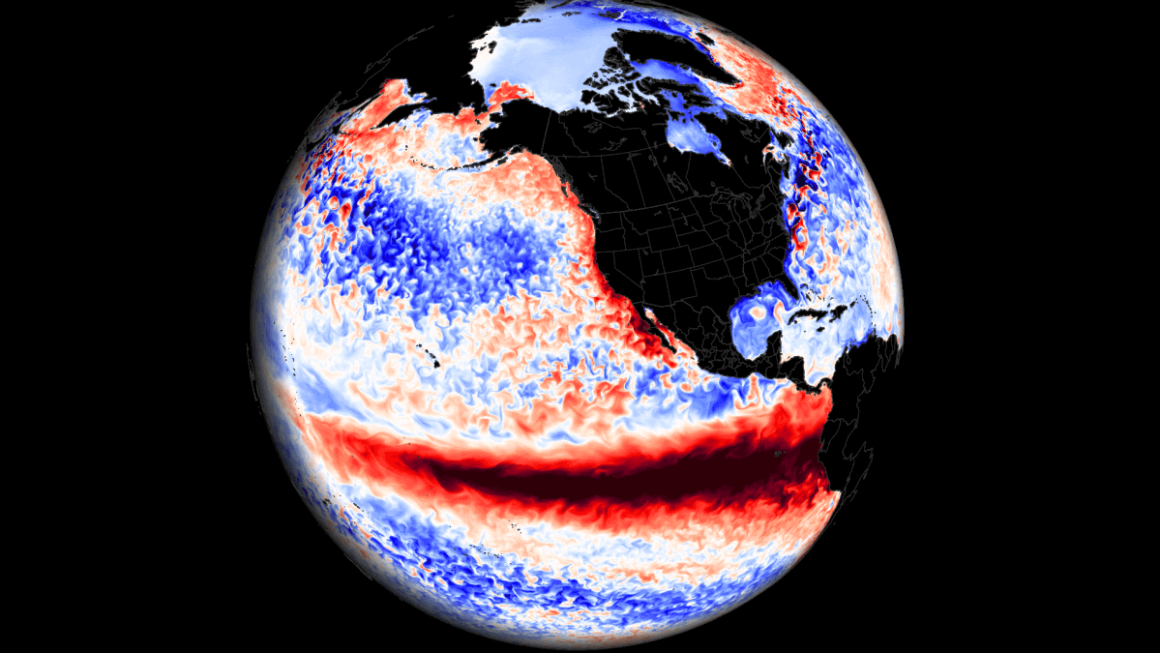By Keishia Taylor
A new report warns that the fast-approaching El Niño will bring unprecedented scorching temperatures globally. The next five years will almost certainly be the warmest five-year period ever recorded, according to the UN World Meteorological Organization (WMO). The El Niño Southern Oscillation (ENSO) is a natural phenomenon that cycles between warmer El Niño and cooler La Niña phases, changing global weather patterns and causing heat waves, droughts, hurricanes and flooding. In a capitalist system that disregards human life, this spells disastrous consequences for food and water security, health and the environment.
During El Niño, the equatorial Pacific Ocean becomes up to 3°C warmer, adding up to 0.2°C to the average temperature of the Earth. Since the planet is already 1.2°C above pre-industrial times, this extra heating phenomenon could (even temporarily) tip us over the 1.5°C target set in the 2015 Paris Agreement within the next year.
What can we expect?
Despite the cooling effects of an unusually-long La Niña over the last three years, we have seen an increase in the frequency and intensity of extreme weather events. For example, dramatic wildfires have ravaged huge regions of the Amazon, Australia, California, Spain, Greece, Siberia, Lebanon, Chile, Tanzania, Algeria — the list goes on.
But as this natural climate event collides with the worsening climate effects caused by human activity, we can expect cataclysmic results. Australia, for example, is facing a dramatic swing from a rainy three-year La Niña period to one of the hottest, driest El Niño periods ever seen, heightening the risk of severe heat waves, droughts and fires. Climate experts claim that with the onset of El Niño, “the extreme weather that has rampaged across our planet in 2021 and 2022 will pale into insignificance.”
A typical El Niño causes drought in Indonesia, Australia, southern Africa, and India, intense hurricane seasons in the Pacific, colder winters in northern Europe, and widespread heat waves, causing deaths and mass displacement and sharpening poverty and food insecurity for millions of people. But as the planet’s warming due to greenhouse gas emissions continues unabated, those conditions could soon be the long-term norm, even in the cooler phases of the ENSO.
The roots of the problem
The climate crisis is quickly reaching devastating tipping points from which there will be no return. Despite hundreds of countries and large companies making net zero pledges, which in themselves are nowhere near enough and there are almost no rules to enforce them, they are failing to meet their targets. The WMO has reported that the concentration of all three greenhouse gases hit unprecedented levels in 2021.
Recent years have seen a multitude of mass protests, youth climate strikes, the global feminist wave, and the upsurge of the labour movement in many counties. Therein lies our hope — a united working class movement that can end the rule of the capitalist class that is laying waste to our planet. It is clearer than ever before that we need urgent action on climate change and a democratic socialist society built for human and environmental wellbeing, not profit.












